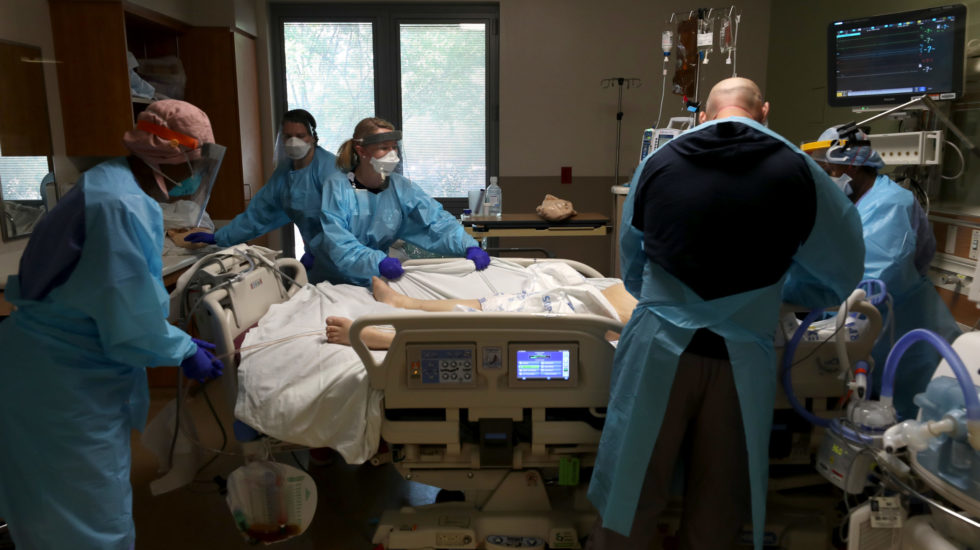As coronavirus cases rapidly rise, there is a growing need, once again, for protective gear. But without Washington acknowledging the issue, some healthcare workers are once again left with a lack of masks, gloves, gowns, and even body bags.
ABC News writes that “nurses, doctors and health care supply chain experts blamed the scarcity of masks, gowns and gloves on the Trump administration’s decision not to centralize and coordinate the purchase of protective gear, which has forced states and hospitals to bid against each other.”
“Everybody thought it was kind of solved, but it really hasn’t been,” Deborah Burger, the president of National Nurses United, told ABC News.
They also expressed frustration with the lack of transparency with the state of the supply chain, and President Trump’s refusal to leverage the Defense Production Act to compel producers to scale up operations to prepare for the resurgence of the virus.
Speaker of the House Nancy Pelosi addressed this during her weekly briefing.
And remember when Trump touted his love for disinfectant? There’s no order to produce more of that either. The Environmental Protection Agency recently said some forms of Lysol are effective tools for killing coronavirus on surfaces. But finding a can of Lysol or Lysol wipes has been a little like winning the lottery in the last few months. Bloomberg adds:
Dayna James, an emergency department nurse in Miami, said some days she’s had to clean patient rooms with hand sanitizer because no disinfectant wipes were available. Other days she was rationed to three Clorox wipes per room. Like many colleagues around the U.S., she gets a single N95 mask per shift, which means she may bring a potentially contaminated mask into a new patient’s room, ignoring longtime standard practice.
